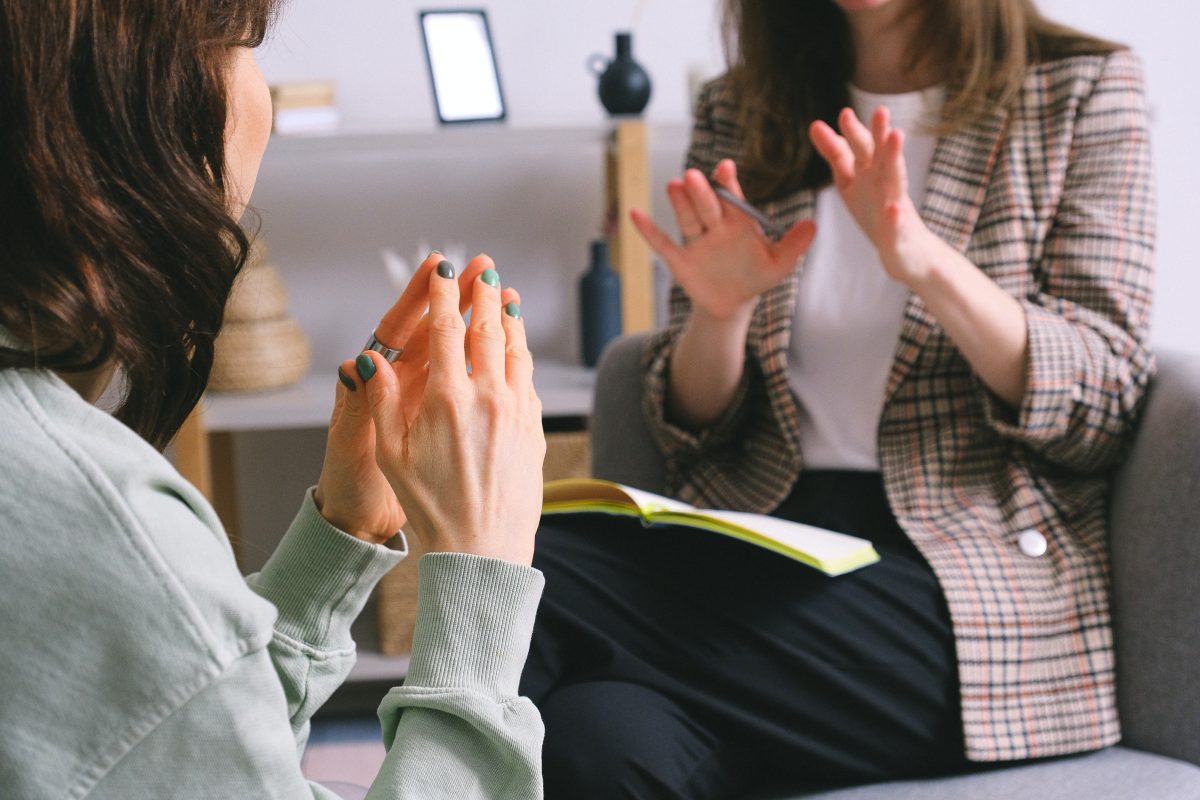Research shows that couples who participate in therapy generally report higher relationship satisfaction levels. So, what is couples therapy and how does it work?
Is there an issue in your relationship that you don’t know how to solve? Or perhaps your union is lacking in intimacy and you aren’t sure how to rekindle the spark you once had? Couples therapy can help.
Couples therapy (sometimes called relationship counselling) is the process of enhancing communication between two partners with the support of a fully trained and qualified professional.
Couples therapy gives you and your partner an equal opportunity to discuss your issues with a neutral, trained and qualified psychotherapist present. Whether you decide to stay lovingly together or to part ways with dignity, I can help.
Partnership can be one of the most stressful and challenging areas of life. Many couples also feel as if they should be able to cope alone. However, couple therapy and relationship counselling can provide a much-needed opportunity to take some ‘time out’ together with facilitation and support.
Some couples may seek out marriage and relationship counselling because they have reached a crisis point and require acute couples counselling. Other couples simply need space to talk, to have room to talk about the things that daily life and busyness does not allow for.
Many couples face complex challenges, such as a general breakdown in communication, chronic arguing and conflict that may lead to a loss of control, shame and guilt, loss of emotional and physical intimacy, financial tensions, feelings of betrayal, an inability to make mutual decisions, cross-cultural issues, connections and tensions with family overseas, step-families, multi cultural as well as relocated families.
Such challenging issues often arise in the complex everyday that couples and families face, so therapy can be an invaluable space in which to gain perspective, to relate to each other clearly once again, and to create constructive paths forward.
Who and what is couples therapy for?
There are a multitude of reasons you might access couples therapy, and there is no ‘correct’ time to seek help.
Reasons you might attend couples therapy include:
- The discovery of infidelity
- A bereavement
- Conflict and arguments
- Financial problems
- Communication breakdown
- Other challenges
Cultural challenges
- Financial struggles that impact the relationship
- Disagreement over parenting
- Addiction within the relationship
- Parenting disagreements
- Sexual misalignment
- Potential divorce
- Moving countries
The Big 4
Having worked as a couple’s therapist since 2004, I have come to notice four major components that cause a relationship to dismantle.
The big 4 in a coupledom are usually;
Sex, power, money and culture.
Sex
Someone once said “Everything is about sex, except sex. Sex is about power.” I have seen how sexual questions in the relationship can pull the dynamics totally off track. Infidelity is one dynamic, a leakage of physical, emotional intimacy and trust. A “simple” sexual act can blow up the entire household, bringing the house of cards tumbling down.
As a relationship grows, so can sexual identity and needs. Perhaps a partner goes from heterosexual orientation, to bravely wanting to step into bisexuality or same-sex interests.
At other times, partnerships may open the closed doors of a monogamous way of living, and which to safely let other sexual partners and games begin.
Illness, stress, work and diffuse displeasure with life can bring about sexual frustrations and a lull in intimacy. Once I heard a woman shout at her partner “I get too little from you, your dick included.” His retorted response “I get way too much of your consistent nagging, and have given up on fucking you.” Such tensions require immediate counselling and support, helping the rupture heal and the couple to grow.
Power
Is one partner considered ‘The Boss’ in your relationship? Is there an obvious power imbalance that is causing resentment? Does power shift from one partner to another after indiscretions, then get earned back over time? Perhaps one of you feels they can’t speak up, or isn’t able to contribute to important household decisions. It’s important that each partner feels valued and important within their relationship, creating a balanced equality. By exploring power dynamics, I can help to create a more fulfilling equilibrium.
Money
There are several ways that money might affect your relationship. It could be that you are financially struggling, and have debt (or hidden debt) causing challenges. Another issue is that you might fundamentally disagree on how money should be spent, or spend money in a way that your partner doesn’t like or agree with. Money can also cause a power imbalance. If one person earns more than the other, or if one person is staying home to raise children and therefore is dependent on the earner for money, resentments can sneak up on both of you.
Communicating about money issues and coming to a clearer understanding of each other’s values is a positive step towards a more equal and respectful relationship.
Culture
Cultural disagreements can be incredibly challenging because our culture is part of our individual identity. Your identity and your lived experiences make you who you are. The same can be said of your partner. But if your backgrounds are different you might find that this influences your current relationship dynamic. You may also have added cultural pressures such as connections and tensions with family overseas, the challenges that come with step-parenting / blended families, or family relocation. These issues are not impossible to overcome, and are most likely to be resolved with the help of couples counseling.
Will couples counseling save my relationship?
It can and I am here to do just that. I have helped many couples come together again after serious betrayals.
Going a bit deeper to answering this very common question though, is that you get back what you give out. Whatever is happening within your relationship, I can help you to unpack the problems and find a more thoughtful way forward. But, I can only take you as far as you want to go. There needs to be an opening from you to let me in and then, working together, we can go far.
“If you want to go fast, go alone; if you want to go far, go together”
What can be guaranteed, with just a few couples therapy sessions, is that you will both have a more intimate understanding of one another, and a much clearer view on where the relationship is going.






